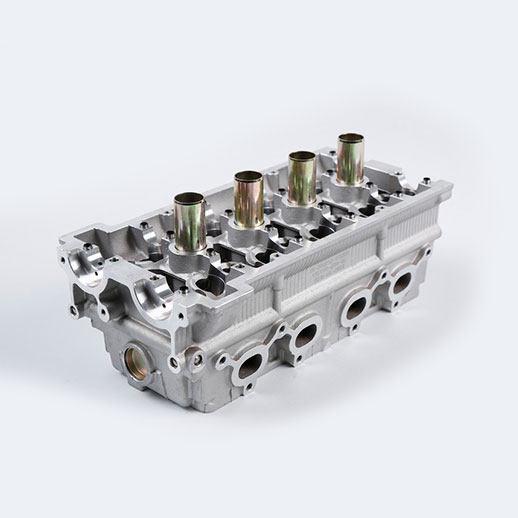What Are the Limitations of Aluminum Die-Casting?

Despite its numerous advantages, aluminum die-casting also has some limitations:
l High Initial Tooling Costs: The dies used in die-casting are complex and expensive to produce. This makes die-casting less suitable for low-volume production runs.
l Limited Part Size: The size of parts that can be produced by die-casting is limited by the size of the die-casting machines.
l Porosity: Die-cast parts can sometimes suffer from porosity, which is the presence of small voids or air pockets within the casting. This can weaken the part and affect its surface finish.
l Not Suitable for All Alloys: While many aluminum alloys can be die-cast, some alloys are not suitable for the process due to their high melting point or other characteristics.
l Thin Walls Can Be Challenging: Producing thin-walled die-castings can be challenging due to the need for precise control of the die-casting process.
l Draft Angles Required: Die-cast parts require draft angles, which are slight tapers on the vertical walls of the part, to facilitate removal from the die. These draft angles can sometimes affect the design of the part.
l Limited to Non-Ferrous Metals: Die-casting is primarily used for non-ferrous metals such as aluminum, magnesium, and zinc. It is not typically used for ferrous metals like steel or iron due to their high melting points and the potential for die wear.
l Potential for Defects: In addition to porosity, other defects can occur in die-castings, such as misruns, cold shuts, and surface imperfections. These defects can be minimized by careful process control and die design.
l Not Suitable for Undercuts: Die-casting is not well-suited for parts with significant undercuts, as these can be difficult to remove from the die.
l Environmental Impact: While aluminum is recyclable, the die-casting process itself can have an environmental impact due to energy consumption and the generation of waste materials.
Overall, aluminum die-casting is a versatile and efficient manufacturing process that offers many advantages for the production of high-quality, complex parts. However, it is important to be aware of its limitations and to consider them carefully when selecting a manufacturing process for a particular application.
- Art
- Causes
- Crafts
- Dance
- Drinks
- Film
- Fitness
- Food
- Παιχνίδια
- Gardening
- Health
- Κεντρική Σελίδα
- Literature
- Music
- Networking
- άλλο
- Party
- Religion
- Shopping
- Sports
- Theater
- Wellness


